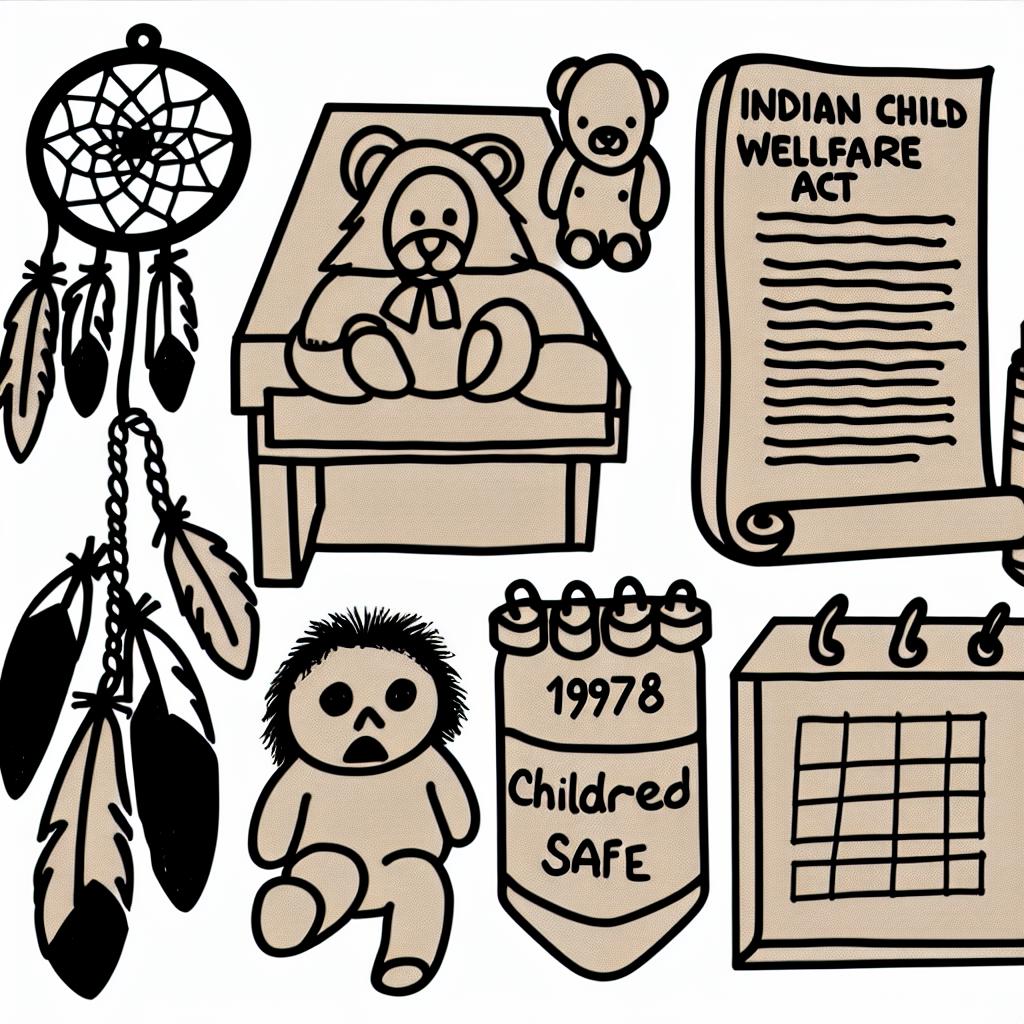The 1978 Indian Child Welfare Act: An Overview
The Indian Child Welfare Act (ICWA) of 1978 is a pivotal statute in the United States, formulated to tackle specific challenges encountered by Native American families. Congress enacted this legislation as a direct reaction to the alarmingly high rate at which Native American children were being separated from their families by both public and private agencies. The primary objective of the ICWA is to safeguard the best interests of Native American children while also fostering the stability and security of Native American tribes and families.
Historical Context
Prior to the ICWA’s enactment, Native American children were frequently removed from their familial and tribal environments. Research and studies conducted during this period revealed that roughly 25-35% of all Native American children were being placed in environments such as foster homes, adoptive homes, or other institutions. These placements were predominantly with non-Native families, which led to a profound disconnection from their cultural and familial roots.
This separation had detrimental effects, not just on the children who were removed from their communities but also on the overall cultural fabric of Native American societies. Such disconnection threatened the heritage and traditional practices of tribes, as children grew up in environments alien to their indigenous cultural backgrounds. Recognizing these issues, the ICWA aimed to rectify this situation by preserving and promoting Native American culture through stable familial and community connections.
Key Provisions of the ICWA
The ICWA introduced several vital measures to ensure the protection of Native American children. The law empowers tribes by providing them with a significant voice in all child custody proceedings that involve their children. One of the law’s cornerstone provisions is the prioritization of placing Native American children with family members, tribal members, or other Native families. This placement strategy is intended to ensure that the cultural and familial links of the children are preserved.
Furthermore, the ICWA acknowledges the exclusive jurisdiction of tribal courts over child custody proceedings concerning Native American children living on reservations. For cases involving children living off reservations, state courts are mandated to adhere to specific guidelines laid out in the ICWA to decide custody matters. These provisions were crafted to prevent the arbitrary removal of Native American children from their cultural contexts and thus support their integration within their communities.
Implementation and Challenges
Since the ICWA was signed into law, its implementation has faced numerous challenges and been subject to legal scrutiny. State courts and child welfare agencies are required to balance the intricate aspects of federal, state, and tribal regulations. In practice, the compliance with ICWA’s provisions has been inconsistent across various states, with reports indicating that some states have not wholly conformed to the mandates set forth in the act.
Moreover, the ICWA has been the subject of recent court challenges. Critiques of the law argue that it places excessive burdens on state child welfare systems and question the law’s constitutionality. Nevertheless, proponents, including numerous tribes and advocates, staunchly defend the ICWA, highlighting its fundamental role in protecting the rights of Native American children and preserving their cultural heritage.
Impact on Native Communities
The ICWA has had a profound impact on the preservation of Native American culture and family integrity. By minimizing the displacement of children from their tribal communities, the law has facilitated the continuity of cultural traditions and reinforced the structure of Native societies. Additionally, the ICWA respects and sustains the sovereignty of tribal nations, giving them an indispensable role in determining the welfare and future of their children.
Importantly, the act has contributed to reinstating the trust between Native American communities and government agencies by acknowledging tribal authority and cultural practices. This recognition plays a crucial role in addressing historical grievances and aids tribes in maintaining their cultural identities.
Conclusion
The Indian Child Welfare Act of 1978 stands as a monumental achievement in the fields of child welfare and tribal sovereignty. Although it faces ongoing challenges, the legislation remains instrumental in advancing the welfare of Native American children and families. Understanding the significance of the ICWA is vital for those interested in the confluence of child welfare, tribal law, and cultural preservation.
With its focus on promoting and preserving Native American culture and familial links, the ICWA continues to serve as a critical framework for ensuring that Native American children grow up within an environment that respects their heritage and supports their community. This legislation not only addresses immediate concerns regarding child welfare but also contributes to the broader objectives of cultural sustainability and tribal community strength.
For further reading on the Indian Child Welfare Act, the Bureau of Indian Affairs supplies additional resources and information that provide deeper insights into the ICWA’s provisions and impacts.

